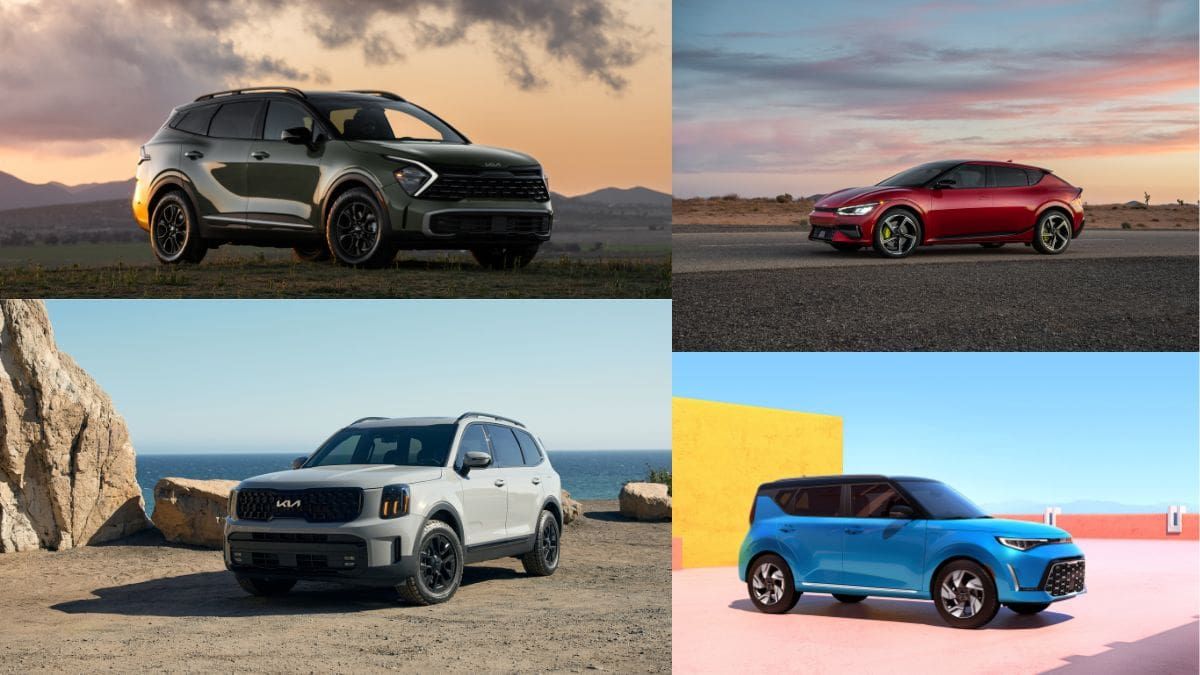As I wrote in a previous piece, Kia's newest EV (actually newest of any type of vehicle), the flagship EV9, won multiple awards and other recognition from respected US and European media outlets. This week, Kia also won: 3 (separate) Consumer Guide Automotive Best Buy Awards for the EV6 (Best Buy in the compact crossover category), the Telluride (Best Buy in the midsize crossover category), and the Soul (Best Buy in the subcompact crossover category); the EV9 was named to Popular Science’s “50 Greatest Innovations of 2023” and a recipient of the Best of What’s New Award; the Sportage won the IIHS Top Safety Pick+ Award; the Telluride won the J.D. Power US ALG Residual Value Award and the Kelley Blue Book Best Buy Award; and I am sure there is something else out there, somewhere, I am missing too. This is a veritable haul of accolades and Kia should be proud of its designers and engineers for building such widely acclaimed vehicles and for prioritizing more sustainable materials and approaches in their manufacturing processes. But what does it all add up to? Are all these awards a form of marketing gold and will they inevitably lead to throngs of buyers lining up at dealerships ready to buy their next, or first, Kia?
Addressing my first question, these awards add up to some significant, positive press for Kia that will unquestionably bolster Kia’s standing among consumers generally, and the subsets of tech savvy (and or those who are fans of innovative design and features), value focused, and safety conscious car buyers specifically. These awards also may help erode any lingering memory of inferior quality, boring design, and lack of features, safety or otherwise (this in the minds of older car buyers who remember the reputation and designs of Kia’s vehicles in the 1990s and the aughts, and even well into the previous decade). But what they may not do, at least for those car shoppers more proficient in researching or for those whose memories influence them more than recent press, is convince potential buyers that Kia has as much long term quality as competitors like Toyota. Kia, and its sibling brands Hyundai and Genesis, have been particularly beset with recalls. Some are particularly concerning, for example a recent recall the US NHTSA (National Highway Traffic Safety Administration) enacted for millions of Kia, Hyundai and Genesis vehicles that could catch fire while driving, or while parked. Of course all car brands suffer recalls, even those most revered. But Kia and its sibling brands seem to have suffered a higher volume of recalls in recent years (or a higher volume of affected vehicles at least). Add to this the abundant instances of Kia and Hyundai thefts, which are due to the fact that Kia and Hyundai chose not to install basic anti-theft features (i.e. immobilizer chips) in millions of their vehicles sold in the US in the previous decade. Note that Kia and Hyundai vehicles with push button ignition systems are not affected by this issue since they have the immobilizer chips. Thefts are so rampant in fact that several US cities are suing the automakers for their failings. So clearly, Kia (and Hyundai) have something of a public image problem, too. What could they do to address this, besides building so many award winning and attractive vehicles?
Kia has long offered industry leading warranties on its vehicles, which certainly helps hesitant consumers potentially get over fears of quality. I think what Kia (and Hyundai) need to do now, in terms of addressing these challenges to their perceived quality, is offer some similarly reassuring “guarantee”. Perhaps this could be a more robust and resilient anti-theft system than is standard in other brands, or perhaps it is “gap coverage” for any customer that experiences a theft during the bumper to bumper warranty period (the gap being whatever their car insurance may not cover due to the theft), or even something as simple as a significant discount on a new vehicle for those who may have experienced a theft. My point isn’t to recommend a specific approach, it is just that Kia should probably consider taking some action that will address its recently publicized shortcomings in order to instill more faith and attract new (or former) customers (back) to the brand.
What do you think? Are you at all concerned about the longer term reliability, safety or security of Kia and Hyundai vehicles? PLease leave your questions or comments below.
Images courtesy of Kia.
Justin Hart has owned and driven electric vehicles for over 15 years, including a first generation Nissan LEAF, second generation Chevy Volt, Tesla Model 3, an electric bicycle and most recently a Kia Sorento PHEV. He is also an avid SUP rider, poet, photographer and wine lover. He enjoys taking long EV and PHEV road trips to beautiful and serene places with the people he loves. Follow Justin on Torque News Kia or X for regular electric and hybrid news coverage.





